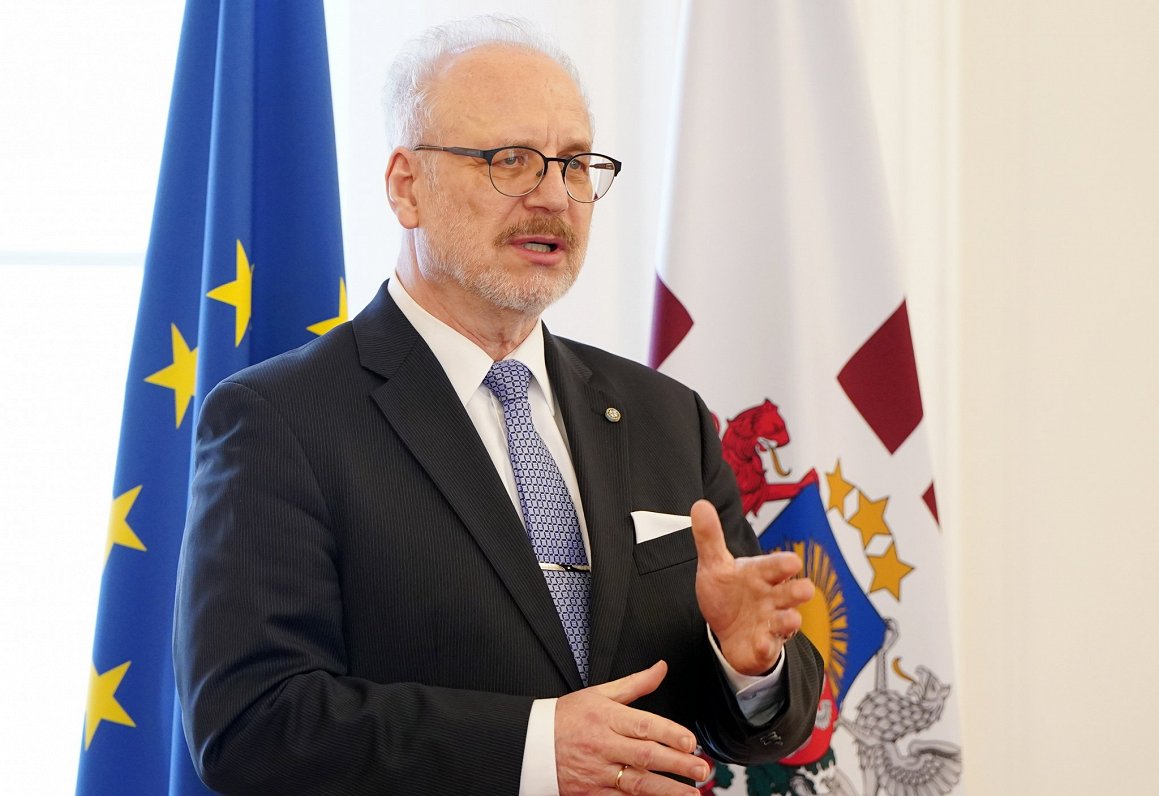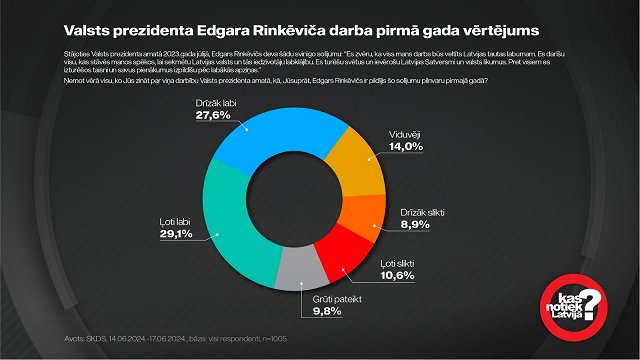The President of Latvia pointed out that Latvia's State policy is consistent in that it mentions and condemns the crimes of occupation regimes in a variety of ways and honors its freedom fighters. In Levits' view, it is also in line with society's majority position.
Levits said that “there are a lot of Russian and Soviet colonialist history prints in our mentality, some of which are more visible, some less visible, but most remain at a subconscious level”. The President noted that the monuments set up in many places of Latvia were removed during the Awakening period and immediately after the restoration of the independence of the country, but many monuments and other signs set up by the occupation authority remained untouched.
Levits pointed out that, against the backdrop of Russian aggression against Ukraine, it was clear to the majority of the public that these monuments and other marks were not merely a legacy of “innocent” history, but targeted ideological objects. In his view, their existence is an active symbol of ideology hostile to an independent, democratic, Latvian-speaking state, which is incompatible with the foundations of the State of Latvia and the fundamental values of the democratic society specified in the Constitution.
“A large part of the street and place names which recall the men in power of the Soviet occupation, the local collaborationists, or in any other way, are clearly linked to the Soviet Union or to civilian Russia, remain and form part of our public environment,” noted Levits.
Levits therefore urges the Saeima to adopt a law on the changing of names introduced as a result of Communist totalitarian regime and russification policies.
"Attitudes to our past and their representative street names are a matter [to be solved at] a national level. They cannot be treated differently in different municipalities. It needs to be the same across the country. It is therefore a matter for the Saeima,” the President of Latvia said.
"Latvians have a lot of honorable people, important events, a concept related to our vision of the world to which the streets could be renamed. Here the public should be involved with their proposals. In any event, the discussion on these names itself will be seen as a contribution to our level of historical awareness," Levits said.
At the president's discretion, a part of society still feels that something links Latvia to Russia, for example, when Russian is chosen as a second foreign language at school [despite there often being no other option], when Russian skills at work and so on are required. According to Levits, it is a kind of “masochist self-discrimination” whose roots lie in the unconscious, repressive sense of closeness to the “Russian world”, even thirty-three years after the restoration of Latvia's independence.
“Historically, this is understandable. The focus of the victim on the perpetrator, long after its power is over, is psychologically a very frequent reaction. But it makes us as a society jailed. This prevents us from assessing our past in accordance with our moral values today and from releasing a legacy of the past that distorts our self-awareness and vision of the world,” Levits said, emphasizing his view that there is no need for streets and other names in Latvia that honor the Soviet occupation regime or the tsarist Russian Empire.
The full text of his proposal (in Latvian) is available at: https://www.vestnesis.lv/op/2023/118.7
Levits' end-of-term intervention is likely to be one of his last, with new President Edgars Rinkēvičs due to take up office next month.





























